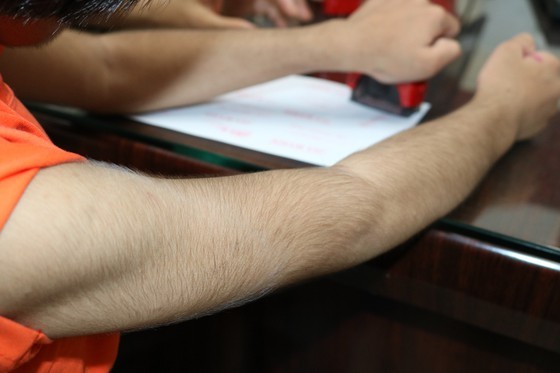
The girl hailing from the Southern Province of Vung Tau was diagnosed to have Cantú syndrome because she has thick scalp hair that extends onto the forehead and grows down onto the cheeks in front of the ears.
It is rare congenital systemic disease with 74 cases being written in medical record in the world. In Vietnam, the case is the first.
These people with Cantu syndrome have increased body hair, especially on the back, arms, and legs. Most affected individuals have a large head (macrocephaly) and distinctive facial features that are described as "coarse." These include a broad nasal bridge, skin folds covering the inner corner of the eyes (epicanthal folds), and a wide mouth with full lips. As affected individuals get older, the face lengthens, the chin becomes more prominent, and the eyes become deep-set.
These people with Cantu syndrome have increased body hair, especially on the back, arms, and legs. Most affected individuals have a large head (macrocephaly) and distinctive facial features that are described as "coarse." These include a broad nasal bridge, skin folds covering the inner corner of the eyes (epicanthal folds), and a wide mouth with full lips. As affected individuals get older, the face lengthens, the chin becomes more prominent, and the eyes become deep-set.
Early June , 2020, the girl was taken to the hospital for examination and remove body hair as she has thick hair at birth and the hair grows fast and is thick and shiny.
Doctors found the symptoms bizarre; therefore, they carried out clinical tests which have shown the girl has abnormalities including a broad nasal bridge, skin folds covering the inner corner of the eyes (epicanthal folds), and a wide mouth with full lips, the lengthened face, the prominent chin, broad ribs and deep-set eyes.
Additionally, she has heart defect and brain defect.
Especially, she has an autosomal dominant pattern, which means one copy of the altered ABCC9 gene in each cell is sufficient to cause the disorder.
The hospital has covered all medical fee and test cost. Moreover, doctors provided consultation to the girl’s parents about her condition so that they can rush them to other hospitals for further treatment.
Dr. Anh Tu advised parents to take their children to infirmaries for examination if the children have abnormalities of hair to help children escape the feeling of inferiority complex.
























